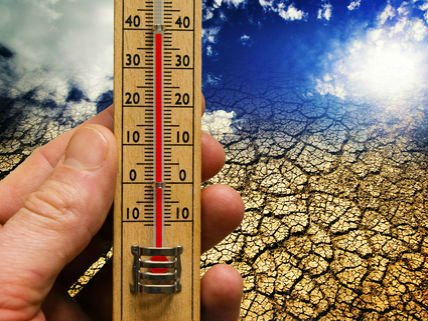- May 20, 2009
- 144,524
- 66,936
- 2,330
What it reads is irrelevant, what matters is how much we must adjust the baseline to prove man-made global climate warming change or whatever they're calling it today
Follow along with the video below to see how to install our site as a web app on your home screen.

Note: This feature currently requires accessing the site using the built-in Safari browser.
Was there any point to this thread, other than that bear and the other deniers are failing hilariously at basic statistics, failing so badly that they don't have any idea of how badly they've failed?
That is the point everyone else is taking away from it.
You denier loons stink at the science, and that's why you're laughed at. It's not because of a socialist conspiracy. It's because you're incompetent cult clowns.
The differences are so small with average water that it has about a +/- 0.5 deg F is well within the ranges.. But it was easily done by any weather observer to verify the item was within its normal operating range..A bucket of water with ice in it can be anywhere from 32.1 to 50 degrees F.A bucket of water filled with ice cubes.... let set for about 15 min and read. it should read 32 degree's F or 0 deg Celsius...place that date and time of check on the station log form with the reading observed.And where is your 1902 calibration certification?Taking a simple unscientific poll what does this thermometer read? Pretend you are a scientist in 1902 and have to read and record a thermometer every day.

Even back then they understood the tools they were using...
Second issue is the purity of the water. Water with high mineral content will freeze at a different temperature than pure water.
It looks to me to read 38.8, but you offered nothing close. Anyone with reasonable vision reading a reasonable scale should be able to estimate readings to one tenth of the smallest division. Thus, your thermometer can be read to a tenth of a degree. Accuracy would be well within +/- 0.2.
\what a crock of crick bullshit...It looks to me to read 38.8, but you offered nothing close. Anyone with reasonable vision reading a reasonable scale should be able to estimate readings to one tenth of the smallest division. Thus, your thermometer can be read to a tenth of a degree. Accuracy would be well within +/- 0.2.
It looks to me to read 38.8, but you offered nothing close. Anyone with reasonable vision reading a reasonable scale should be able to estimate readings to one tenth of the smallest division. Thus, your thermometer can be read to a tenth of a degree. Accuracy would be well within +/- 0.2.
It looks to me to read 38.8, but you offered nothing close. Anyone with reasonable vision reading a reasonable scale should be able to estimate readings to one tenth of the smallest division. Thus, your thermometer can be read to a tenth of a degree. Accuracy would be well within +/- 0.2.
\what a crock of crick bullshit...It looks to me to read 38.8, but you offered nothing close. Anyone with reasonable vision reading a reasonable scale should be able to estimate readings to one tenth of the smallest division. Thus, your thermometer can be read to a tenth of a degree. Accuracy would be well within +/- 0.2.
So you have a calibrated eye and you can determine the tools accuracy too...
There is a reason NOAA gave these weather observes a hand book over 100 years ago. Its called consistency in accuracy.... something you obviously know nothing about..
Yes. Irrelevant deflections.Do you see where I am getting at?????
And no cheating by blowing it up, you don't have that luxury in 1902.
.
Do you see where I am getting at?????.
Taking a simple unscientific poll what does this thermometer read? Pretend you are a scientist in 1902 and have to read and record a thermometer every day.

38.8 degrees
However that's not the point. It makes no difference really. As long as the person reading it is being consistent.
Scientific data must be done the same each time and with the same precision.